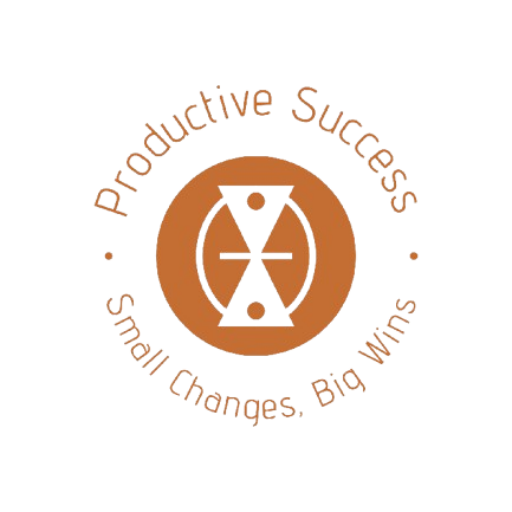Introduction
Have you ever studied and just felt in the mood? Just like feeling that you’re in the flow. Like your only thoughts are just centered on your work and nothing else? Well, that feeling is called a flow state, and it’s part of the overall idea deep work. Deep work will revolutionize your productivity and allow you to do a weeks work in 2 hours.
So, without further ado, let’s get into it

What Is Deep Work and Why It’s Crucial for Success
So, you’re probably thinking, what even is deep work? Well, deep work is the ability to focus in on one cognitively demanding task for a prolonged period of time. Simply put, it’s just focusing on an important task for about an hour. For example, these important tasks can include your business, studying for an exam, working out, etc. However, playing games or just doing nothing of value can’t be considered a “cognitively demanding” task.
The period of time that deep work takes place varies from person to person. However, generally, the more deep work you do, the longer you’re able to do it for. For example, because you’re probably not used to deep work, your first deep work sessions will be about 30 minutes long, and by way of time it’ll increase. That, however, is fine. You can’t expect to have long bouts of deep work in your first uses.
Deep work is your best friend for focused, high-quality productivity. The state of doing deep work is called a flow state, this means you’re completely focused on your task, and every single thought in your mind is focused on your task. Furthermore, this ability to tune your whole body into one task is powerful for achieving meaningful results. You can’t achieve results without deep work, it’s just not possible.

Creating the Perfect Environment for Deep Work
Before we actually get into the flow state, we need to set up our environment for it. Setting up your environment for deep work is the hardest part of entering a flow state. You can’t enter a flow state without a non-distracting environment. Uninterrupted work is one of the key principles of a flow state, making it impossible to enter one with distractions.
We firstly need to set up our physical workspace to encourage deep focus. I recommend listening or looking at the notes of Andrew Huberman’s Podcast on optimizing your environment. However, I’ll go over the basic optimizations you need to make for deep work. First of all, you should clean your desk and remove all unnecessary documents off of it. I’ve discussed this before in my blog on organizing your workspace, but just having random and useless papers on your desk sub-consciously distracts you.
The second main tip I will give you for physical workspaces consists of two parts. The first part is lighting, and the second part is visual focus. You need to have enough lighting in your room to focus. The recommendation is to have bright lighting when working in the morning, dim your lighting down in the afternoon, and in the evening lower the light to lowest possible level you can work in. For visual focus, it’s pretty self explanatory. Firstly, you’ll want to work sitting up straight, not looking down or looking up. Secondly, you’ll want to narrow your eyes down to the space of where you’re working. Wearing a hoodie is effective in this since it narrows your field of vision down.
Creating the Perfect Digital Environment for a Flow State
This section will be quite short because everyone knows what to do on their computer to focus. First of all, make sure your notifications are off, and your phone is not in the same room as you. I find in my past experience that just having my phone in the same room as me distracts me. Secondly, you need to close all tabs and windows that aren’t related to your deep work, keeping only the important ones in focus. Lastly, if you’re having trouble focusing, you should set a timer on your computer of about 30 mins to 1 to count down the amount of time you have left to focus.

Time Management Strategies for Deep Work Sessions
The best way to manage your time and create deep work sessions is to identify your natural body rhythm. You’re probably wondering what I mean by this. Well, you should start by splitting your day up into three phases. Phase 1 is the first 8 hours after you wake up, Phase 2 is the next 8 hours, and Phase 3 is the last 8 hours. In phase 3, you should almost always just be sleeping.
Phase 1 and 2, however, are interesting in the way to optimize them. Phase 1 is based around waking up, since several chemicals are released upon waking up that cause an alerted state in your body. In addition, dopamine is also elevated during this phase. Therefore, during this period, you should engage in your most challenging habits/deep work to maximize the flow state. This why I always recommend to do your hardest work right after you wake up as part of your morning routine.
For Phase 2, your dopamine and other chemical levels start to come down to regular levels. Therefore, you should try to do work that doesn’t take a lot of thinking/isn’t new to you in this time. For example, I would work on my business or work out in the morning for my deep work. However, in the afternoon, I would decide to do school assignments and other menial tasks that I can complete any time. You can also use timetables, as outlined in this blog for boosting productivity.
Time Management Strategies during Flow State
Now, I’ll discuss the best time management practices for when you’re in your flow state. First of all, I would recommend starting off with a 30 minute flow state when you’re new, and just gradually increase it. I usually do 1 hour flow states with 15 minute breaks in between each flow state. You’ll usually want to do more than 1 flow state for your work, so you should always add breaks in between. However, despite my recommendations, always build your flow state timers around your maximum ability to focus on one assignment for a long period off time. Like I said earlier, the amount of time someone can focus on varies from person to person.

Overcoming Common Obstacles to Deep Work
The most common obstacle of deep work is procrastination. Procrastination could have about 2 blogs written on it, however, I’ll identify the easiest way to beat procrastination and focus on your work. My favorite strategy is breaking down large tasks into small ones, and finishing the big task like that. Let’s take writing a blog for example. I would start by just adding the images I want to use for the blog first, then I would write my outline for my first section, second section, etc. After a while, I end up finished with the blog just by progression of tasks.
So, my biggest recommendation is to break it down into small tasks and work up to finishing the big task. The added benefit of this is even if you don’t work past the small tasks, you’ve made progress towards the big task regardless. Another big problem is mental fatigue, which has several solutions to it. However, the one that’s worked for me is to just start out with large breaks and slowly decrease the type between them. In order to increase your flow state time, you need a small amount of mental fatigue in order to build past it. So, by slowly lowering the time of your breaks, you get a small amount of mental fatigue but you work past it.
Keeping Motivation and Discipline Alive
My best tip for staying disciplined ties in to the small tasks part. As long as you’re able to complete at least one small task every day, you’re building discipline. Eventually, those small tasks will upgrade into big tasks, suddenly, you’re the most disciplined person you know. Keeping motivation is also important, and I do this by thinking of my future self. Ultimately, I want to do all this hard work so that I can give my future self a good life, so that motivates me. However, everyone has something unique that motivates them, so I recommend trying to find yours.

Conclusion
Overall, deep work and using flow states to your advantage can revolutionize your productivity. Flow states teach you about organization, and being able to resist distractions. Flow states also allow you to massively boost your discipline, and keep you motivated along this journey. Deep work as a whole turns losers into winners, and lazy people into disciplined people. So, if you struggle with shallow work, deep work is perfect to turn you into a productivity machine. However, you should always remember that
Nothing changes if nothing changes




